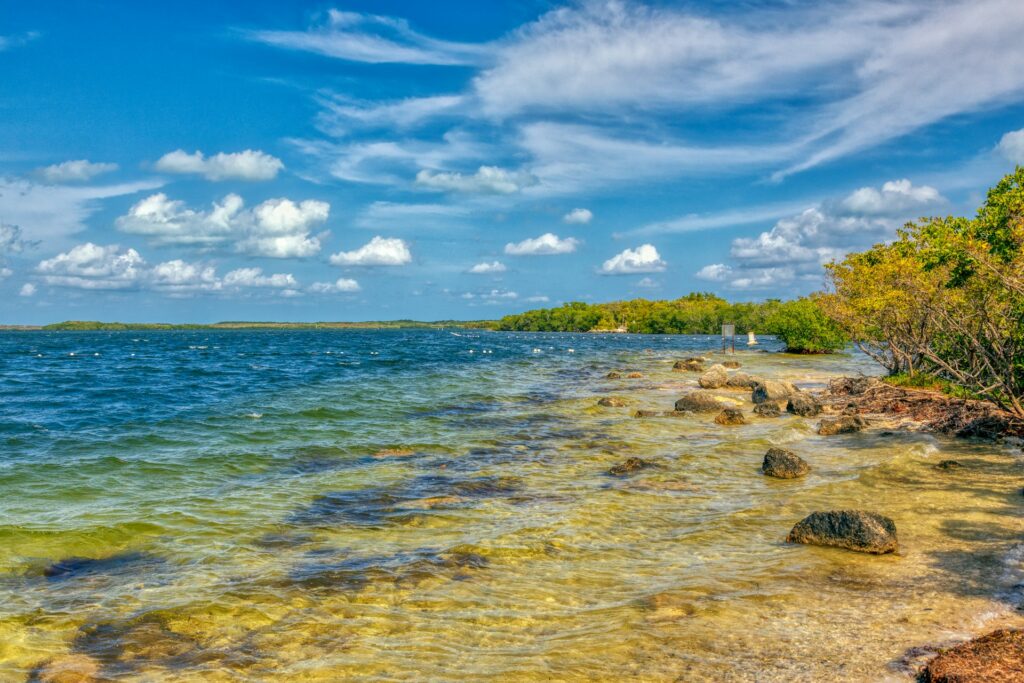AGU News
Register to attend the Triennial Earth-Sun Summit during the eclipse!
The Triennial Earth-Sun Summit (TESS) will be held 7-12 April in Dallas, Texas, in the path of totality. Scientific programming begins on 9 April, the day after the eclipse. To register, simply email us at [email protected]. Scientific sessions are on-site only. AGU’s housing is full. [TESS website][scientific program]
Nominate work for AGU’s journalism awards by 27 March
The deadline to nominate your own or others’ stories for the 2024 AGU Journalism Awards is 27 March at 11:59 p.m. ET. News and feature stories published in 2023 and focused on the Earth and space sciences are eligible. Email us at [email protected] with any questions. [AGU journalism awards]
Featured Research
Warmer winters in surface ocean near Florida Keys
As oceans continue to reach record-high temperatures, understanding the drivers of warming becomes increasingly urgent. A new 150-year record of sea surface temperatures from long-lived coral species reveals that waters heated up especially during winters between 1830 and 1980, pointing to changes in the Florida current as a potential cause. [Paleoceanography and Paleoclimatology research]
Marine exhaust scrubbers may actually increase pollution
Marine fuel typically has high sulfur content, which add sulfur oxides to the atmosphere when burned. That pollution can be limited by using low-sulfur fuel or, per regulations, adding a wet exhaust scrubber. Low-sulfur fuel reduces emissions, but exhaust scrubbers may actually increase the number of particles emitted, a new study finds. [JGR Atmospheres research]
Warming increases tropical cyclone intensification, flooding hazard
Tropical cyclones can quickly intensify just before making landfall, increasing the amount of rainfall and therefore raising the likelihood of dangerous floods. Warmer air will make rapid intensification more common over the next century, and cyclone-associated rainfall will greatly increase, a new study finds. [Geophysical Research Letters research]
Marine heatwaves are choking the Chesapeake Bay
Marine heatwaves in estuaries are less well-understood than in the ocean. A new case study of marine heatwaves in the Chesapeake Bay finds the heatwaves can lead to reduced oxygen in bottom waters, threatening marine life and biogeochemical cycles. [JGR Oceans research]
Inland waters are a blind spot in greenhouse gas emissions
Researchers call for an extensive monitoring network to quantify carbon dioxide and methane released by China’s rivers, lakes, reservoirs, and ponds. [JGR Biogeosciences research][Eos research spotlight]
AGU (www.agu.org) is a global community supporting more than half a million advocates and professionals in Earth and space sciences. Through broad and inclusive partnerships, AGU aims to advance discovery and solution science that accelerate knowledge and create solutions that are ethical, unbiased and respectful of communities and their values. Our programs include serving as a scholarly publisher, convening virtual and in-person events and providing career support. We live our values in everything we do, such as our net zero energy renovated building in Washington, D.C. and our Ethics and Equity Center, which fosters a diverse and inclusive geoscience community to ensure responsible conduct.
